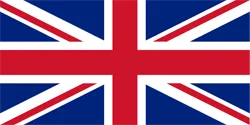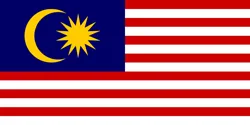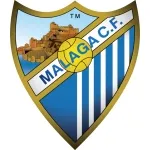Sanchez was given a strong financial support of the Board, and was able to make a variety of deals during the summer break. However after only two league wins during the opening 5 months of campaign and having Fulham in the Relegation Zone Sanchez was fired on the 21st of December 2007 following an defeat against Newcastle United. [3333 Roy Hodgson was named as the new manager of Fulham on December 28, 2007 and was appointed to his contractual obligations on the 30th of December just two days before the opening of the transfer window.
Hodgson's tenure didn't start well , and it took him one month to win his first win in a 1-0 win against Aston Villa, courtesy of an Jimmy Bullard free-kick. Fulham continued to struggle , and losing 3-1 at home in April of rivals Sunderland caused Hodgson near tears at the end of the press conference. Many pundits were discrediting Fulham's chance of survival. Despite the criticism, Hodgson continued to believe the possibility of survival was achievable. The turning point in the season was in the final game of the season in the match against Manchester City.
Fulham were 2-0 down in the second half and, had Premier League scores at that time been a result the club would have been eliminated. But the arrival of Diomansy Kamara was the catalyst for an amazing comeback. Kamara scored twice during the game as Fulham won a thrilling 3-1 win. Fulham also won a crucial game against rivals Birmingham City at Craven Cottage and left the fate of Fulham's hands. If they don't get a goal rush from rivals Reading If they win, the Portsmouth team that is looking forward towards the Fourth FA Cup final would guarantee the club's survival.
After 15 minutes in Portsmouth, Fulham were drawing in the second half, in addition to Birmingham City and Reading leading comfortably against Blackburn Rovers and Derby County respectively, they appeared like they could be eliminated. But, Fulham earned a free-kick at 76 minutes of play Jimmy Bullard's pass brought in Danny Murphy, who headed into the goal that sealed the win and sparked a riot of celebrations by the fans who were travelling. Hodgson made sure that Fulham survived against every obstacle, breaking a number of club records and earning the place he holds in Fulham legends. Fulham barely missed the chance to secure the UEFA Cup place via Fairplay by a baffling 0.8 points. Manchester City, who lost 8-1 to Middlesbrough.
The 2008-09 campaign Fulham was seventh in the highest league position they have ever had qualifying them for the first UEFA Europa League, the second time the club has participated in the UEFA competition.
2009-10 was, in my opinion, the most successful year in the history of the club. Fulham were knocked out of the FA Cup in the quarter-finals for the second time in a row and ended up at 12th place in the Premier League, despite fielding weak teams in the final few games. In the debut Europa League season, however, Fulham reached the final and played Spanish Club Atletico Madrid, who had been eliminated from to the Champions League, at the Volksparkstadion in Hamburg. For their debut European cup final that they played in, Fulham were defeated 2-1. Cottagers were defeated 2-1 following extra time after having drawn 1-1 at the end of the full-time.
The success of being able to take Fulham in a surprising direction and beating teams such as Hamburger SV, Juventus, holders Shakhtar Donetsk and Basel in the tournament which resulted in Roy Hodgson being voted the LMA Manager of the Year with the largest range during the history of this award. The match at home during the Round of 16 was Fulham's most memorable performance in the time of the team. Despite losing 3-1 in first leg against Italian titans Juventus and being a minute behind into the second game in the second leg at Craven Cottage, Fulham scored four goals without a response from Juventus.
In the final week of the season Hodgson quit Fulham to run Liverpool.



 ENG
ENG MYS
MYS 简体中文
简体中文






















 Marco Silva
Marco Silva Stuart Gray
Stuart Gray Antonios Lemonakis
Antonios Lemonakis Phil Kelso
Phil Kelso Jean Tigana
Jean Tigana Chris Coleman
Chris Coleman Lawrie Sanchez
Lawrie Sanchez Martin Jol
Martin Jol Felix Magath
Felix Magath Slaviša Jokanović ±
Slaviša Jokanović ± Claudio Ranieri
Claudio Ranieri

 Basel
Basel CSKA Sofia
CSKA Sofia